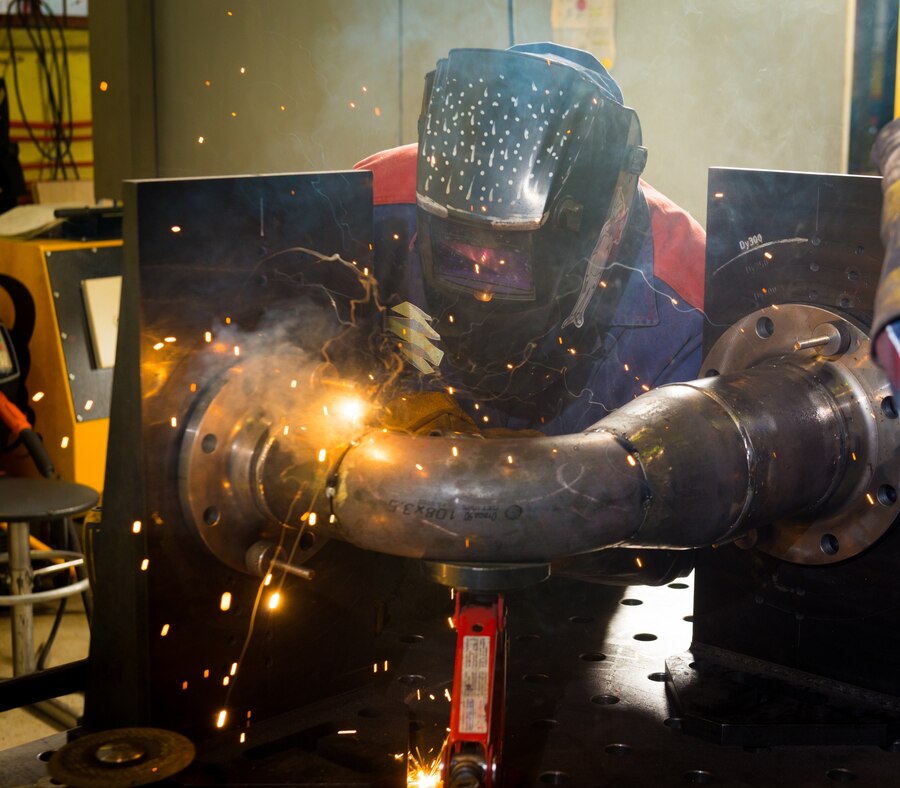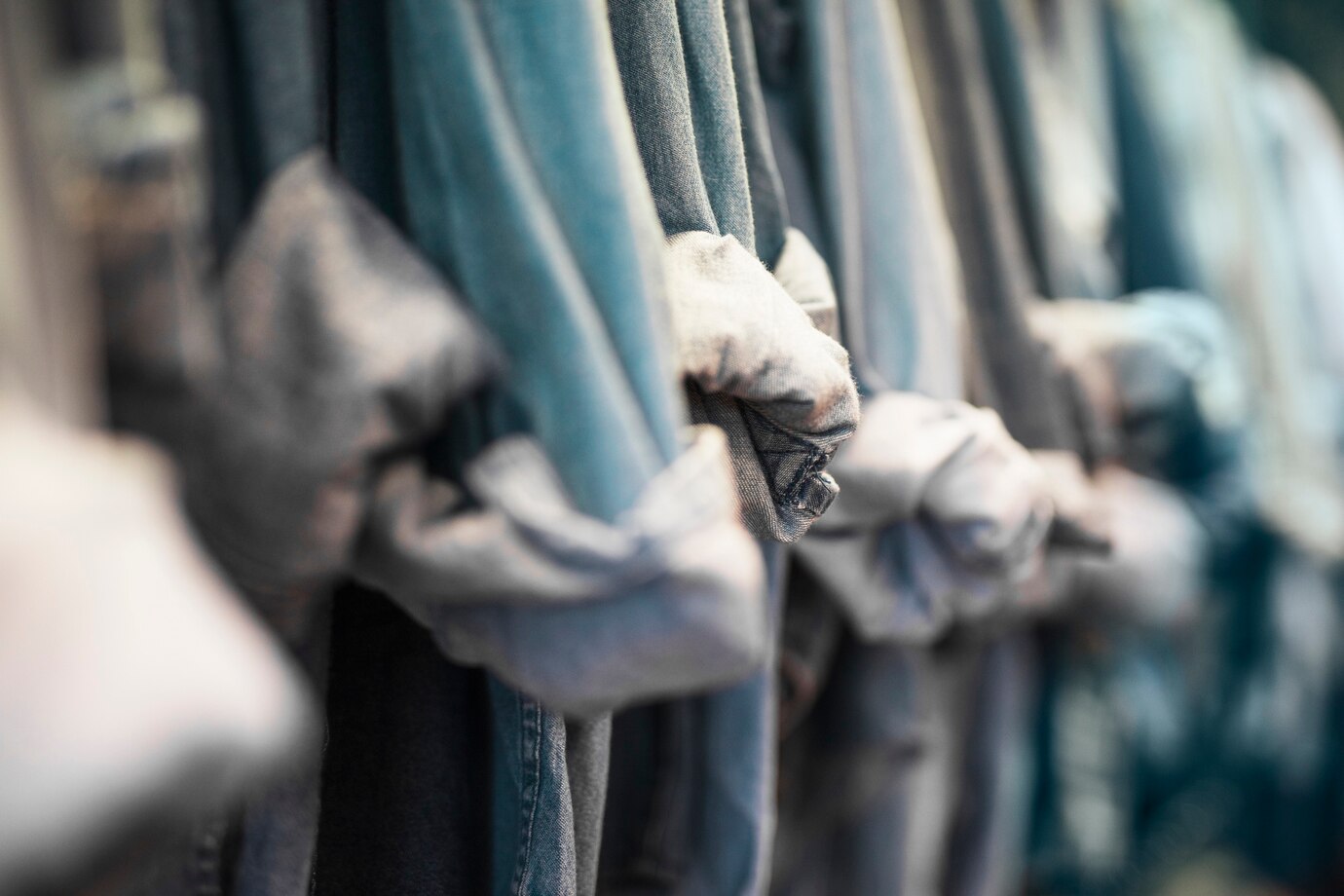In recent years, the workwear industry has been experiencing a major shift as brands increasingly prioritize organic cotton and natural fibers in their manufacturing processes. These sustainable materials are gaining traction for their environmental benefits, comfort, and durability, which are exactly what workers need in tough environments. With growing concerns over sustainability and the environmental impact of the fashion industry, manufacturers are turning to these natural fibers to create eco-friendly and high-performance workwear. Here’s how organic cotton and natural fibers are shaping the future of workwear manufacturing worldwide and why this trend is one to watch.
1. Organic Cotton: A Sustainable Game Changer
Organic cotton is rapidly gaining popularity in the workwear industry for its sustainability and comfort. Unlike conventional cotton, organic cotton is grown without the use of harmful chemicals, pesticides, or synthetic fertilizers. This means that it’s better for the environment, safer for workers, and gentler on the skin, making it an excellent choice for those who wear workwear for long hours.
The environmental benefits of organic cotton are significant. The cultivation of organic cotton reduces water usage and promotes healthier soils by avoiding synthetic chemicals. As businesses and consumers become more environmentally conscious, the demand for sustainable workwear made from organic cotton continues to grow. Organic cotton garments not only help preserve ecosystems but also reduce the carbon footprint of clothing production.
For workwear brands, using organic cotton can be a major selling point, as it aligns with the broader movement toward eco-friendly manufacturing. Whether it’s for shirts, pants, or jackets, incorporating organic cotton into your workwear line enhances your sustainability credentials while delivering a soft, breathable, and durable option that workers will appreciate.
2. Natural Fibers: The Natural Choice for Comfort and Durability
In addition to organic cotton, natural fibers like linen, hemp, bamboo, and wool are emerging as top choices for workwear manufacturing. These materials are not only biodegradable but also offer a host of practical benefits for workers who need clothing that can handle a range of conditions.
- Hemp: Known for its strength and durability, hemp is becoming a popular option for workwear, particularly for garments that need to withstand heavy-duty tasks. It’s naturally antibacterial and moisture-wicking, making it ideal for workers in physically demanding jobs. Hemp fibers are also low-maintenance and require less water to grow compared to conventional crops.
- Bamboo: Bamboo fabrics are highly breathable and moisture-wicking, making them a great choice for workwear in warm or humid environments. Bamboo is also naturally antibacterial and hypoallergenic, offering added protection for workers with sensitive skin. As bamboo is fast-growing and doesn’t require pesticides, it’s also a sustainable alternative to synthetic fibers.
- Linen: Linen is another excellent natural fiber used in workwear, especially in industries that require lightweight, breathable clothing. Known for its strength and quick-drying properties, linen is an ideal fabric for workers who need to stay cool in warm climates. It’s naturally UV-resistant and gets softer with each wash, providing long-term comfort.
- Wool: Wool is a versatile natural fiber, offering both insulation and breathability. It’s an excellent choice for outdoor workwear, as it helps regulate body temperature and can keep workers warm in cold conditions while still being breathable in warmer temperatures. Plus, wool is naturally flame-resistant and moisture-wicking, which is crucial for workers in high-risk industries like construction or firefighting.
By incorporating natural fibers into workwear, manufacturers can create products that are comfortable, functional, and environmentally friendly. These fibers are often biodegradable, reducing the environmental impact when garments reach the end of their lifecycle.
3. Performance Meets Sustainability: Natural Fibers for High-Demand Jobs
While organic cotton and natural fibers are primarily praised for their environmental benefits, they also provide impressive performance for workers in demanding environments. Workwear made from these fibers doesn’t sacrifice durability or functionality. In fact, many natural fibers, such as hemp and wool, are known for their long-lasting nature, meaning workwear made from these materials can withstand years of heavy use.
For example, hemp-based workwear is becoming increasingly popular for industries like construction, agriculture, and manufacturing, where clothing needs to endure tough conditions. Similarly, bamboo fabric is gaining traction in healthcare and hospitality, where workers require breathable, comfortable, and antibacterial fabrics to stay fresh throughout their shifts.
This new approach to sustainable workwear doesn’t just look good on paper—it’s making a real difference in the lives of workers. Garments made from organic cotton and natural fibers deliver comfort and performance while also reducing reliance on synthetic, non-biodegradable materials.
4. Reducing the Carbon Footprint: Natural Fibers vs. Synthetics
The environmental impact of synthetic fibers like polyester and nylon is well-documented. These materials are made from petroleum-based products, require large amounts of energy to produce, and can take hundreds of years to decompose. In contrast, natural fibers like organic cotton, hemp, and wool are made from renewable resources and can break down naturally at the end of their lifecycle.
By switching to natural fibers, companies in the workwear industry can significantly reduce their carbon footprint. As part of the circular economy, these materials are often biodegradable or recyclable, helping to close the loop on garment life cycles and reduce waste in landfills. By adopting natural fibers, your brand can offer workwear that is both sustainable and eco-conscious, contributing to a healthier planet.
5. Customization and Eco-Friendly Workwear Design
The trend toward organic cotton and natural fibers in workwear also opens the door to customization and eco-friendly design. As sustainability becomes more mainstream, businesses are looking for ways to customize workwear without compromising the planet. Natural fibers are highly adaptable and can be blended with other materials to enhance functionality while maintaining eco-friendly qualities.
Whether it’s a tailored fit, a branded logo, or specific reinforced areas for added durability, using natural fibers doesn’t limit customization. In fact, it offers new possibilities for creating personalized, high-performance workwear that meets the unique needs of workers while reducing environmental harm.
Brands that prioritize eco-friendly workwear are also catering to the growing demand for conscious consumerism, where buyers are looking for products that are both functional and environmentally responsible. Emphasizing customization options for eco-conscious consumers will help your brand stand out in a competitive market.
6. The Global Shift: Natural Fibers Taking Center Stage
Across the globe, from Europe to North America to Asia, the movement toward sustainable workwear made from organic cotton and natural fibers is gaining momentum. Manufacturers are increasingly integrating these materials into their global production lines to meet the growing demand for eco-friendly options from businesses and consumers alike.
This global shift represents a significant opportunity for workwear brands to position themselves as leaders in sustainable manufacturing. By incorporating organic cotton and natural fibers into your products, you not only meet the demand for high-quality, durable workwear but also show your commitment to global sustainability efforts.
Conclusion: Leading the Way in Sustainable Workwear Manufacturing
The rise of organic cotton and natural fibers in workwear manufacturing represents a pivotal shift towards more sustainable, comfortable, and durable clothing options for workers across the globe. As businesses and consumers become more environmentally conscious, the workwear industry is embracing materials that not only deliver top-tier performance but also reduce environmental impact.






